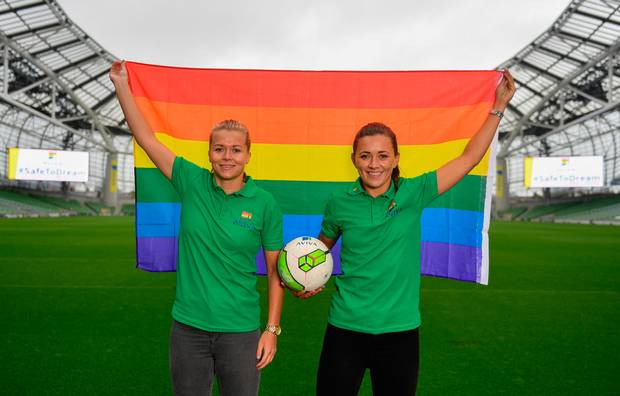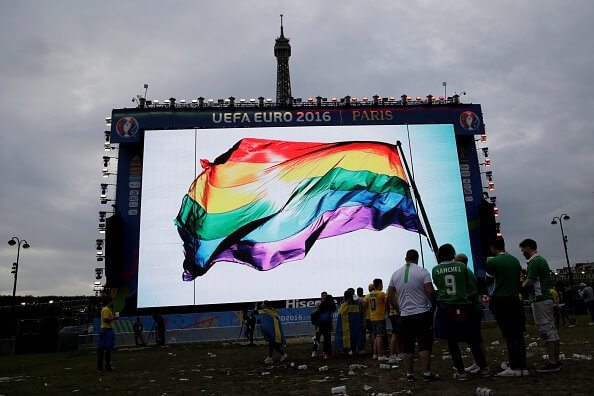Two years ago a report from the Commons Culture, Media and Sport Committee highlighted the problem of homophobia in sport and made suggestions on how governing bodies can take a zero-tolerance approach but little has changed since.

The news that, in some areas of sport, there is an issue with homophobia is not a revelation and, whilst steps are being taken to alleviate the problem, there is a long way to go to eradicate homophobia from the sports we love.
The report highlighted football as having bigger obstacles to overcome than other sports and discusses how many attitudes are out of step with wider society.
Unfortunately, many football fans will regularly hear casual homophobia on the terraces. Stonewall, the UK’s leading LGBT charity, report that 72% of fan have heard homophobic abuse at games. Football is also lagging behind other sports as there are no openly gay players in the Premiership and, according to FA Chairman Greg Clarke, this is unlikely to happen any time soon as a player would receive ‘significant abuse’ if they were to come out.
A survey of 4,000 fans by BBC Five Live found that 82% of those polled would be comfortable with a gay player at their club but, rather alarmingly, 7% said they would no longer watch their team if they fielded a gay player. With a proportion of fans still holding such archaic views, it is not surprising that a high profile player has not had the courage to come out.
Over the past few years, there have been a number of initiatives to tackle the issue of homophobia within football. Stonewall launched its ‘Rainbow Laces’ campaign which was supported by clubs from a grass routes level all the way up to Premier League teams, including Arsenal.
Charities such as ‘Football v Homophobia’ have been established with one of their main drives being to encourage high profile clubs to dedicate a game each season to raising awareness of the issues of homophobia within the footballing community. Individual clubs have also created their own initiatives including ‘Arsenal for Everyone’ which began in 2008.
This celebrates diversity within the club and led to the creation of the ‘Gay Gooners’; Arsenal’s very own LGBT group. As supporters of the club we should be proud that we have one of the first and the biggest LGBT football fan groups with members all across the globe.
In order to tackle the issues highlighted in the Commons Culture, Media and Sport Committee report we need the footballing community to unite.
For this to happen the FA must take a leading role. However, as the recent vote of ‘no confidence’ in the FA from the House of Commons has demonstrated, the organisation is outdated.
The FA LGBT action plan will only come to fruition if there is greater diversity in the rule-making structure. Homophobia in football is an issue that needs to be tackled; clubs need to do more to educate fans and ostracise those found guilty of homophobic behaviour.
In turn, this will allow openly gay footballers to ensure that football mirrors modern British society.

